If you are looking to plant Trees in the Indianapolis area, this page will give you some options to consider. Our state has over 100 native trees, and there are countless others from different parts of the globe and new varieties developed by breeders.
If you are looking for a nursery selling trees, please visit our Trees for Sale in the Indianapolis Area page which lists several local establishments.
Central Indiana Hardiness Zones
Before planting a tree, you should check and make sure it is appropriate for your region of the country. In order to do that, check the Department of Agriculture’s Plant Hardiness Map, which is based on annual minimum temperatures, with a scale going from 11A in Miamai, Florida to 2A in Fairbanks Alaska. Obviously, the higher the number, the warmer the temperature. Each zone has A and B sections, with B being slightly warmer. In Central Indiana, our hardiness zone is 6A (Green) / 5B (Blue).
Don’t try growing trees outside of their hardiness range, because they simply won’t survive. Orange trees (Zones 9-11) won’t make it through an Indiana winter. Apple trees (Zones 4-7) won’t last through the heat of south Florida. It’s also important important to plant trees suitable for the soil moisture and shade for a particular location. When planting, you should also take into account the height of the tree when it matures.
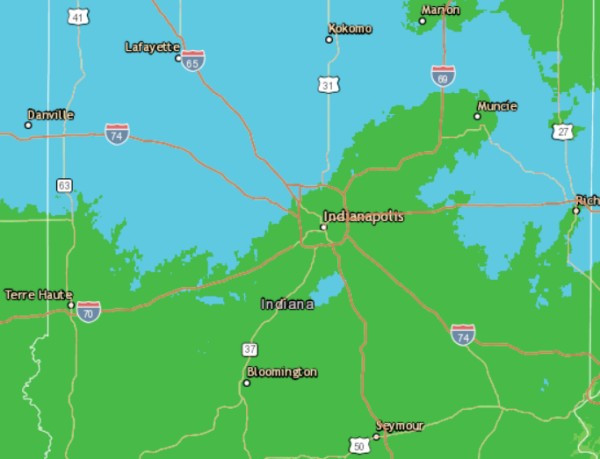
Large Trees for Indianapolis and Central Indiana
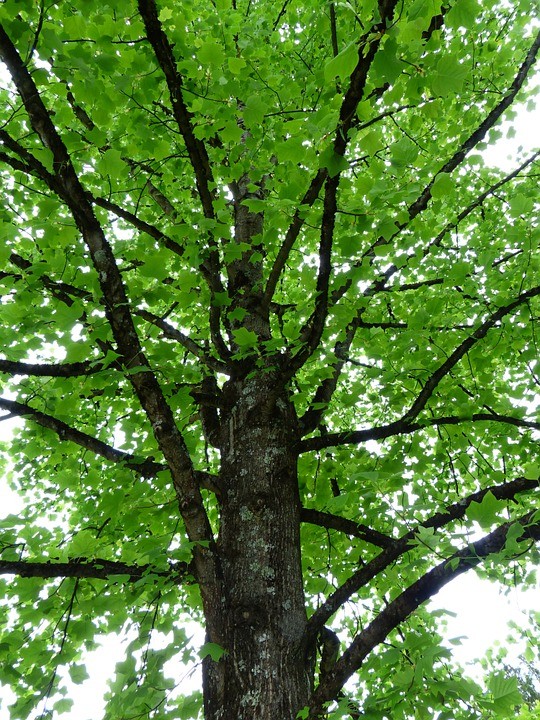
Tulip Tree
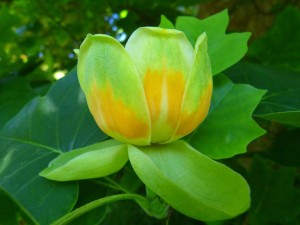
The tulip tree is Indiana’s (Along with Kentucky and Tennessee) state tree. In the spring it has colorful green and orange flowers. The tree’s name comes from these blooms, which look like tulip flowers. They are easily identified by their distinctive, 4-lobed leaves. Although they are often called tulip poplar or yellow poplar, they are not part of the poplar family.
Tulip trees grow fast and can get very large – Over 100 feet tall with a spread of 50 feet. Their wood is pretty soft, somewhat harder than white pine, but much lower than southern yellow pine. Because of this, their limbs are not strong, and subject to breakage. It’s a good idea to keep tulip trees trimmed back somewhat to avoid to avoid this.
Sweet Gum Tree
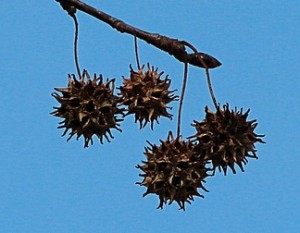
The sweet gum is a popular, medium size ornamental tree. It is an attractive tree with beautiful fall foliage. Their only negative trait is that they produce spiky seed pods which fall onto the ground. You won’t want to walk barefoot under these sweet gums. It’s leaves usually have 5 points and look similar to those of maples.
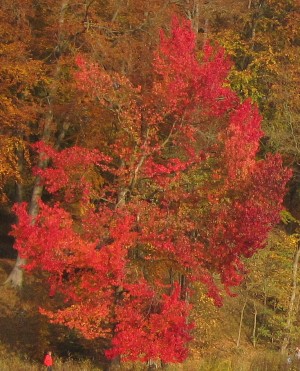
Sugar Maple
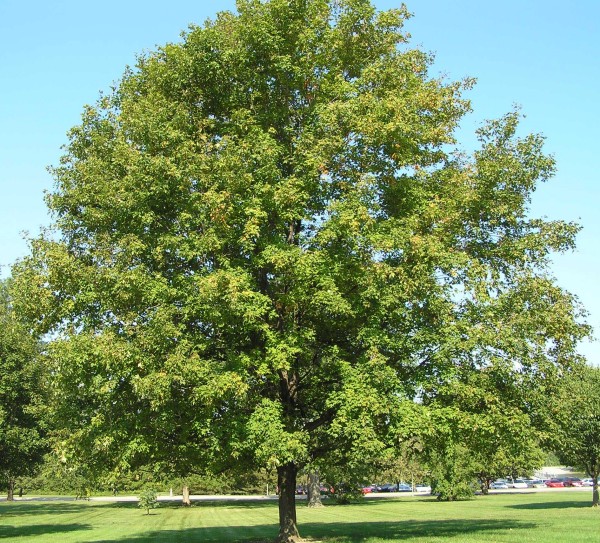
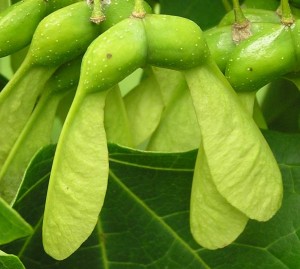
The sugar maple is Indiana’s most abundant tree, with an estimated population of over 300,000 in our forests. Although it was often planted along city streets in the 1800s, it is not very tolerant of automotive pollution or road salt. Therefore it is rarely used for that purpose today. The non-native Norway maple has replaced the sugar maple since it is less distressed by both of these irritants. The sugar maple does not do well in damp soil. Sugar maple seeds have wings, and they helicopter down when they drop.
Maple syrup begins with the sap of the sugar maple. If you want make your own, please realize that it takes approximately 40 gallons of sap to make one gallon of syrup. It also requires a lot of firewood to boil off all of that excess liquid.
Small Ornamental Trees for Indianapolis
Eastern Redbud
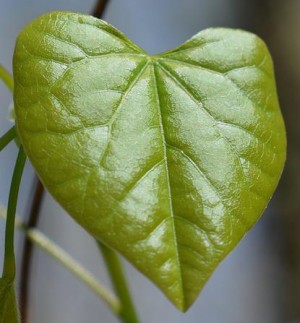
The eastern redbud is a small ornamental tree. It looks beautiful in the spring, due to its purple blooms. George Washington noted the redbud’s beauty in his diary. Heart shaped leaves make it easy to identify during the summer. At maturity its height, and also its spread, will be in the 20-30 foot range,
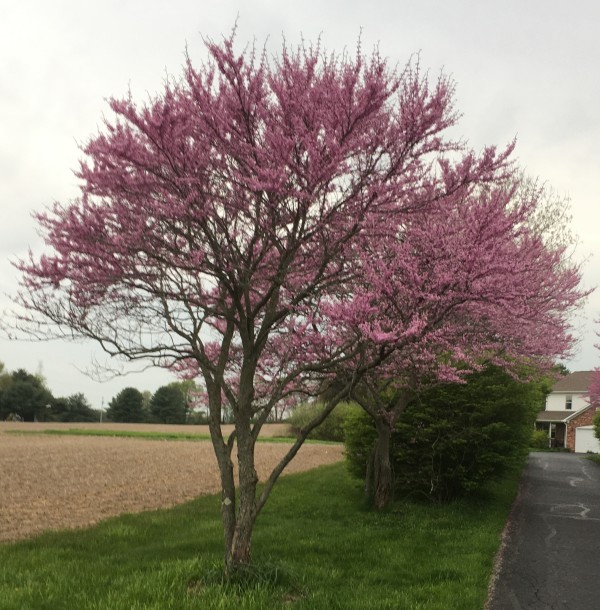
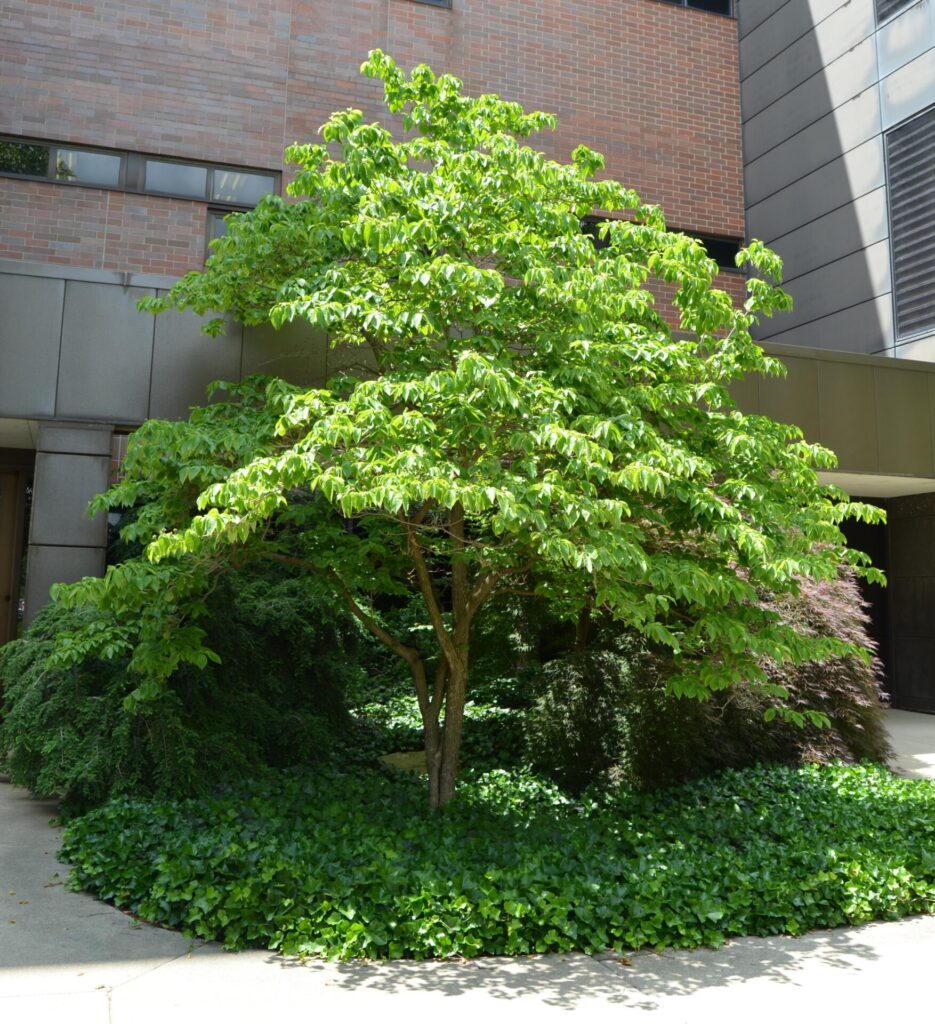
Flowering Dogwood
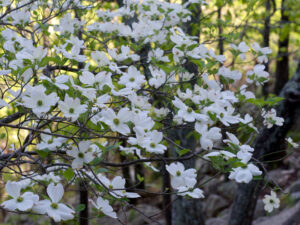
Flowering Dogwood is a very popular ornamental tree that rarely grows more than thirty feet tall. It is native to Indiana and most of the United States east of the Mississippi River, as well as a few states further west. White flowers in the spring are the most common, but cultivars have been developed with a variety of colors.
Two southern Indiana towns like dogwood trees so much that they have spring festivals when they bloom:
Evergreen Trees for Indianapolis
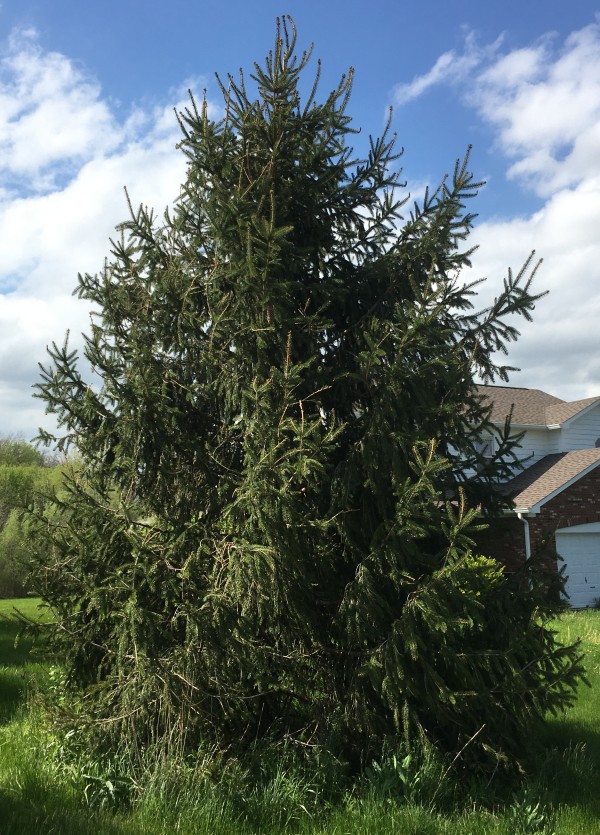
Norway Spruce
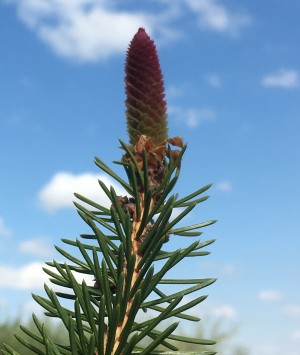
Imported from Europe in the 1800s, the Norway Spruce is a fast growing (Approximately two feet per year) evergreen. It makes an attractive specimen tree, and is used extensively for windbreaks. Norway spruce is very cold hardy, all the down to zone two. It rarely needs trimming, but it can grow to well over 100 feet tall.
Northern White Cedar
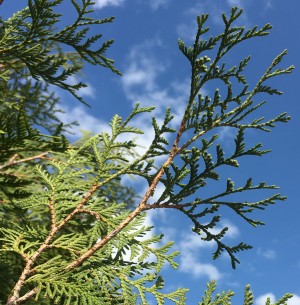
The northern white cedar is an Indiana native, but they are more commonly found farther north into southern Canada. This evergreen’s unique, flat foliage makes it easy to identify.
It typically grows to a height of about 50 feet.
Its seed cones are only about one-half inches tall, and usually grouped together in small clusters.
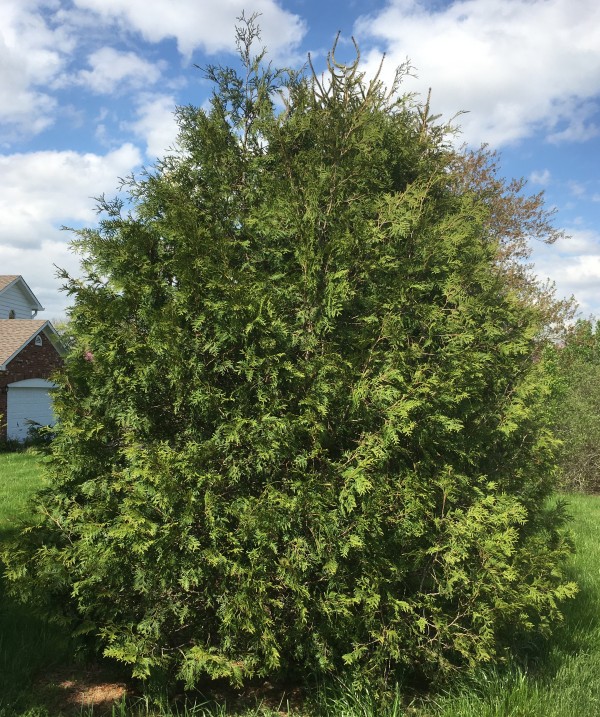
These are just a few of your options if you wish to plant trees in the greater Indianapolis area. If you need any of your trees trimmed or removed, please contact us at (317) 619-3571 or use the contact form at the bottom of our Home Page.
